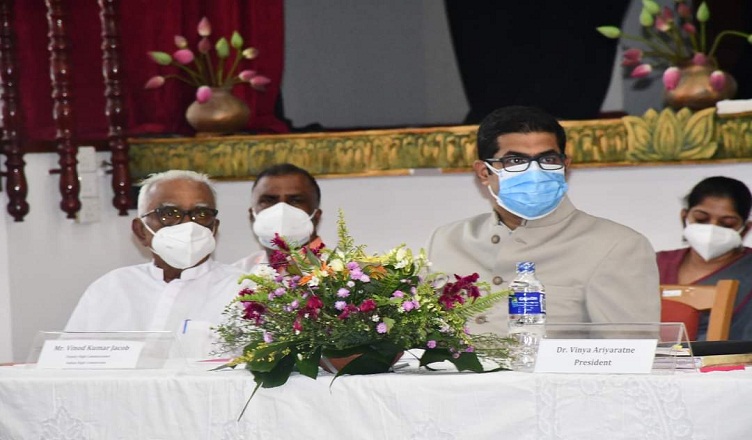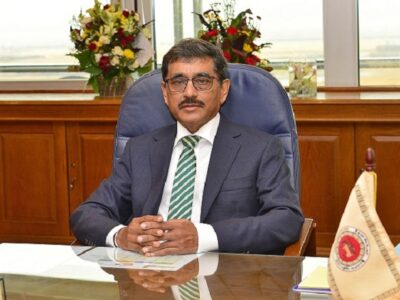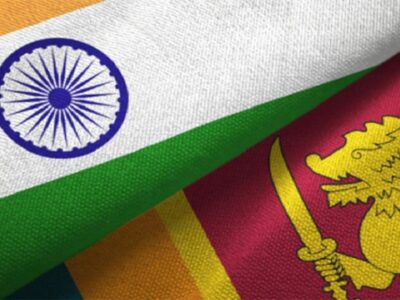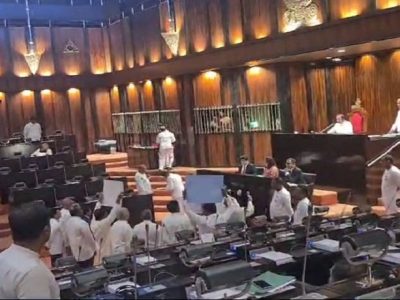(LANKAPUVATH | COLOMBO) – Deputy High Commissioner, Mr. Vinod K Jacob was invited as Chief Guest at the 65th Annual General Meeting (AGM) of the Executive Council of the Lanka Jathika Sarvodaya Shramadana Sangamaya (Sarvodaya Shramadana Movement of Sri Lanka) held at Moratuwa on 11 December 2021. Gandhi Peace Prize winner and founder of the Movement in Sri Lanka, Dr. A T Ariyaratne gave the special remarks. President of Lanka Jathika Sarvodaya Shramadana Sangamaya, Dr. Vinya Ariyaratne also spoke during the occasion.
In his speech, Deputy High Commissioner Jacob addressed three topical matters, namely, the application of Buddhist and Gandhian principles to the challenges of climate change and environmental protection; the relevance of Sarvodaya in a Covid 19 affected global society in general and Indian society in particular; and finally the nature and content of the friendly and mutually beneficial relations between India and Sri Lanka especially in the fields of renewable energy and environment protection.
India has many contemporary examples of initiatives for living in harmony with nature and using technology in doing so like the “Cool The Globe” app and the iconic 750 MW Rewa Solar Power Project in Madhya Pradesh. In the case of the nearly US$ 3.5 billion India-Sri Lanka development cooperation as well, predominant usage of locally available construction and other material ensure that the carbon footprint of the various projects (like the 1990 Suwaseriya Ambulance, Indian Housing Projects, Model Village Housing projects, and others like hospitals, schools etc) is minimal and the construction practices employed are environment friendly.
Such approaches are in line with Indian Prime Minister Shri Narendra Modi’s path-breaking concept of the ‘Panchamrit’ or the five nectar elements to deal with the climate change challenge. These include: first, that India will take its non-fossil energy capacity to 500 GW by 2030; second, India will meet 50 percent of its energy requirements from renewable energy by 2030; third, India will reduce the total projected carbon emissions by one billion tonnes from now till 2030; fourth, by 2030, India will reduce the carbon intensity of its economy by less than 45 percent; and fifth, by the year 2070, India will achieve the target of Net Zero.
Deputy High Commissioner Jacob also highlighted the relevance of the concepts of welfare of all and uplift of all which were reflected in the Directives Principles of State Policy in the Indian Constitution drafted under the chairmanship of the visionary Dr. B R Ambedkar. The Government of India scheduled a nationwide observation of Mahaparinirvan Diwas on December 6, 2021 on the occasion of the death anniversary of Dr. Ambedkar as part of the major commemoration of ‘Azadi Ka Amrit Mahotsav’ which in turns celebrates 75 years of independent India. Hon’ble President and Prime Minister of India along with ministers and prominent representatives from various ministries, attended Parliament House to pay floral tribute to Baba Saheb’s statue, followed by Dhamma Puja recitation by Buddhist monks at the occasion.




